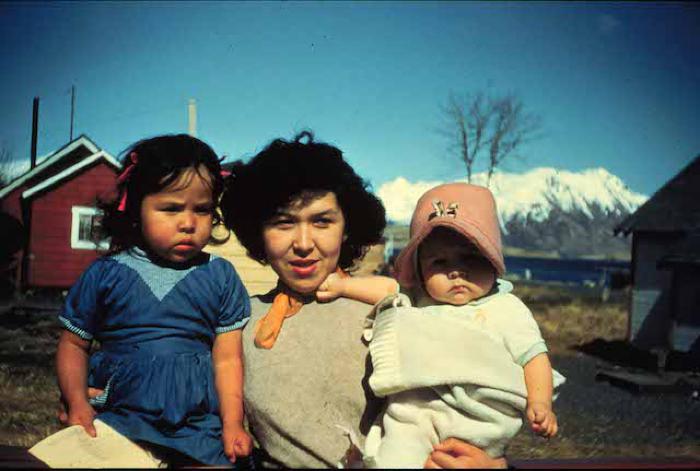Baby — Carliaq, Piipiq, Peipiq

Among the Alutiiq people, babies are signs of luck. In traditional society, women gave birth with the help of a healer, who functioned both as a midwife and a community doctor. Pregnant women began visiting the midwife when they were three to five months pregnant. Prenatal care took place in the banya or steam bath. Here a midwife monitored the baby’s growth and worked with their hands to position the infant and avoid complicated deliveries.
Babies were born in small, temporary huts adjacent to their mother’s homes. Here a laboring woman was secluded to prevent contamination of her husband’s hunting gear. A midwife tended to those in labor, holding the expectant mother in a sitting position for delivery. Herbal medicines soothed labor pains and assisted the production of milk. Seclusion lasted five to ten days after birth, and then mother and child were reintroduced to their household with a steam bath. At this time, the infant’s labret holes were pierced. Until they could walk, babies were strapped to cradleboards with supports woven from beach ryegrass. Moss was used for diapers, and infants were affectionately tended. Mothers never left a baby to cry.
